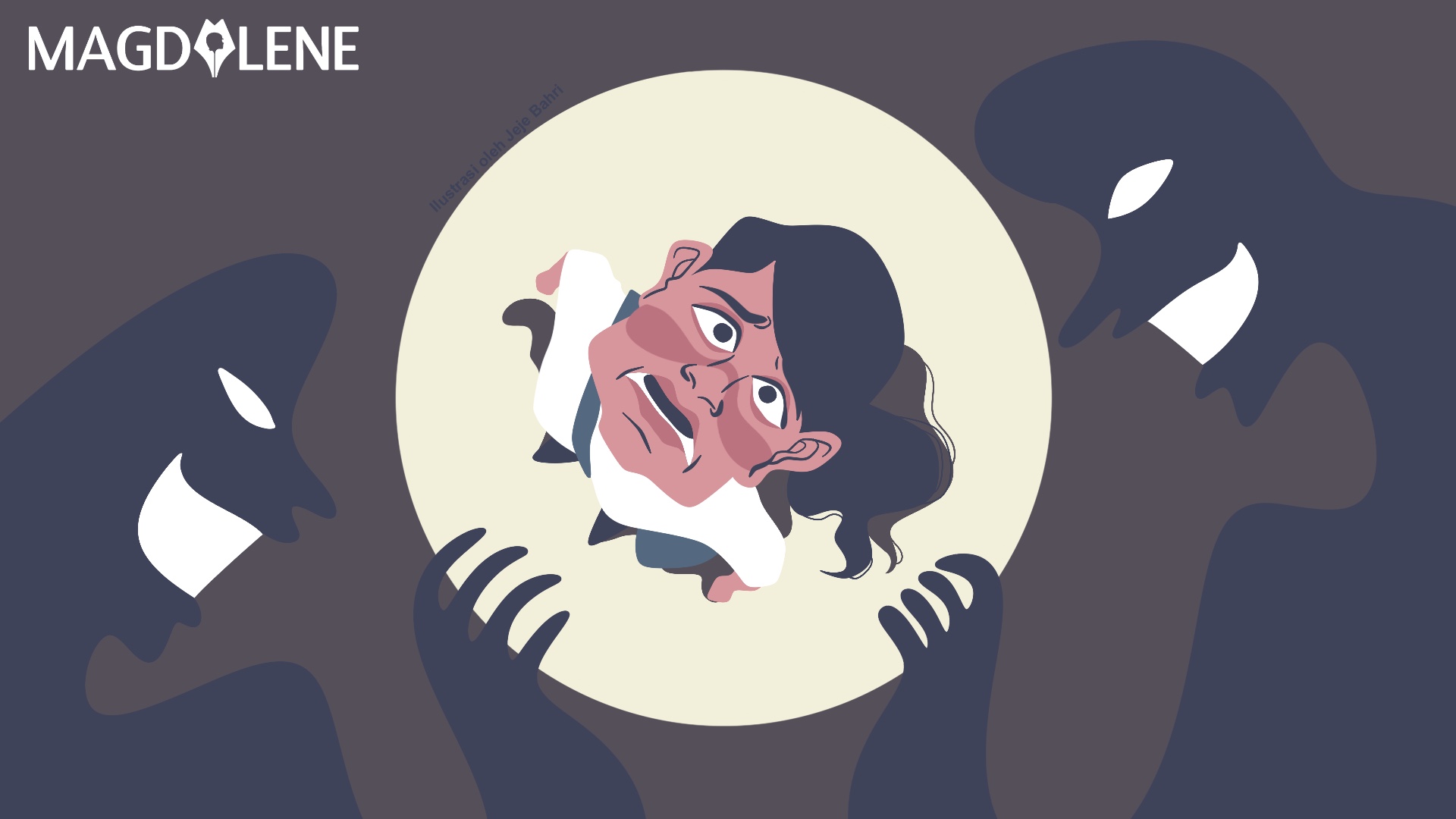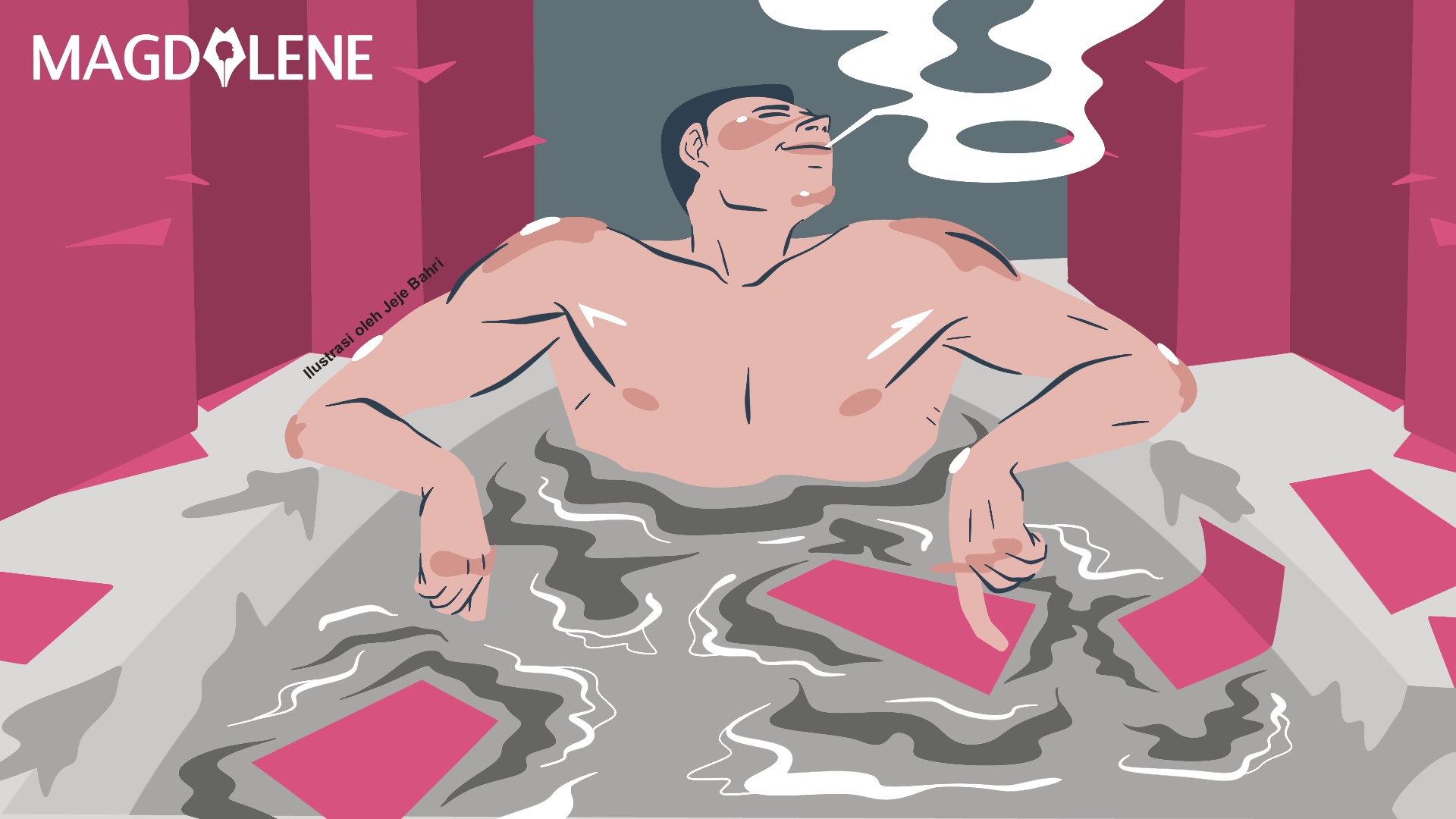No Excuse for Abuse: Body Autonomy and Power Relations in Rape Prevention
It's time to stop treating rape as a sexual issue: it's all about power. Understanding power relation and body autonomy may empower us to prevent from being abused.

The recent high-profile sexual abuse allegedly committed by poet Sitok Srengenge to a University of Indonesia (UI) student – as well as another one involving a lecturer at University of Jakarta (UNJ) and his student – has shown that campus with its power dynamics is a vulnerable place for sexual violence.
It doesn’t help that perception on sexual abuse and violence is still shrouded in the old paradigms and myths, with victims often blamed for wearing “inappropriate” clothes or for being out too late at night. Lack of proper sex education and the perception of sex as a taboo subject have also failed to teach young Indonesians that they have autonomy over their own body.
This was addressed during a workshop held by Support Group and Research Center on Sexuality Studies (SGRC) UI on Oct. 16 themed “No Excuse for Sexual abuse”. The workshop aims to present a new perspective on sexuality, counter the myths on sex, and raise awareness about sexual violence in campus domain. During the workshop Rahmat Saragih from Aliansi Remaja Independen or the Independent Teenagers Alliance (ARI), Mariana Amiruddin from the National Commission for the Protection of Women (Komnas Perempuan) and Nathanael Sumampouw from Yayasan Pulih talked about ways to prevent sexual harassment and sexual violence in Campus area.
Self-Ownership
Firstly, everyone has a right to his or her own body and to take charge of it.
“We need to acknowledge that our body belongs to us and us only – not our family, not the society, not the government, not anybody else,” Rahmat said.
He illustrated the way the Indonesian society perceives a woman’s body by showing a picture of two lollipops, one fully wrapped, the other unwrapped and swarmed with flies. It was a perfect analogy of how society encourages women to cover their body and their head. The message is: if you don’t want to be harassed and raped, you need to cover yourself up. But what about those countries where all women have to cover their whole body? Are they free from rape? Not really.
No society has the right to tell women what to wear or how women should express themselves, Rahmat said.
“We need to acknowledge that our body belongs to us and us only – not our family, not the society, not the government, not anybody else.”
If a woman has the right to wear whatever she wants, does it mean then that a man also has the right to do whatever he wants to her? No! Individual autonomy ends when it violates other people, said Rahmat. Men and women have to fully understand the concept of self-ownership and how important it is to respect others.
He breaks down Sexual and Reproductive Health and Rights (SRHR), which is that every individual has the right to a safe and healthy intimate relationship, free from physical or psychological violence. Everyone also has the right to control his or her reproductive organs by having access to contraception.
According to the International Planned Parenthood Federation treaty, there are 12 rights that fall under SRHR and must be protected, namely the rights to life, to liberty and security, to equality and to be free from discrimination, to privacy, to freedom of thoughts, to information and education, to choose whether to or not to marry, to decide whether or when to have children, to have health care and health protection, to the benefits or scientific progress, to freedom of assembly and political participation, and to be free from torture and bad treatment.
Rape and Power Relation
The biggest misconception is that rape is a sexual issue, when, in fact, it is about power.
“Rape happens as the result of power relation,” Mariana of Komnas Perempuan said.
She quoted a passage from her essay published in Jurnal Perempuan entitled “Perkosaan Bukan Soal Seks, Tapi Kekuasaan” (Rape is Not about Sex, But Power) that said that “…rape isn’t about sexual attraction at all, but about controlling the victim and removing their autonomy and humanity.”
In most cases, rape happens not because the rapist cannot control his sexual desire, but because there’s an urge to physically hurt and dominate other sexually. She listed some myths surrounding rapes, one of them is that a woman’s appearance is what attracts a rapist. As a matter of fact, rapists don’t choose their target based on appearance. The victims are chosen based on their perceived vulnerability and the attackers’ opportunity to proceed.
“Rapists don’t aim at sexy women; they target those who are vulnerable,” she said. Vulnerability can include mental condition, focus, and awareness. Their victims range from toddlers to the elderly, since sex appeal is not a factor.
“So I suggest you not to show weakness and to always be aware of your surroundings. Whatever you wear, wherever you go, if you show them that you are brave and strong enough to fight back, they won’t go near you, because basically rapists are cowards,” said Mariana.
Secondly, it is a myth that a woman who doesn’t want to be raped should be able to resist it when it happened. In fact, even if the rapists have no weapon, victims are often overcome by intense fear that makes them unable to move a muscle.
In most cases, rape happens not because the rapist cannot control his sexual desire, but because there’s an urge to physically hurt and dominate other sexually.
Rape is also not an impulsive act that is based on spontaneity, in most cases it is well planned just like other criminal cases.
“Moreover, it’s mostly done, not by strangers, but by family members! The father, the brother, the cousin, the uncle, and so on,” she added.
In society so deeply rooted in patriarchy, men are raised to feel superior to women and rape is one way to show “who’s in power” and to validate the notion. Rape can also be fueled by anger or political motives, like the gang rapes of ethnic Chinese women in Jakarta during the 1998 riots in Jakarta, she said.
Understanding the Psychological Aspect
Sexual violence in campus domain could happen in many forms of power relations: between senior students and their juniors, between lecturers and their students, between the mentors and the mentored, or in a couple.
Nathanael, a lecturer at the University of Indonesia and a psychologist from Yayasan Pulih said psychological aspect is often the reason a rape victims does not report their assault immediately. People often doubt the victims by asking why they didn’t report earlier, not understanding that victims are often reluctant to report because of factors like family, friends and society.
“If a family member is a victim of sexual violence, for example, everybody in the family tends to stay silent. Why? Because we were raised in a culture that considers rape a personal and shameful matter,” he explains.
The law enforcers don’t provide much help either. Victims are expected to come to the police wearing dark clothes, looking depressed and crying in order to be taken seriously, he said, when, in fact, people have unique ways of expressing their feelings, and they don’t always express their feelings in typical grieving manner.
“The way victims react could vary, from confusion, embarrassment, guilt, shame, denial, fear, anxiety, to numbness,” he added.
The psychological state of the abusers may vary as well. He listed eights kinds of abusers, including “the untouchable”, abusers who act as if they are protected and have the power to control. Some abusers are “risk takers”, people who are perfectly aware of what they do but act like they are not afraid of punishment. Some are ”passive initiator” who will praise, flatter, flirt first, while waiting for the victim to give him an opportunity to assault.
If someone you know is a sexual violence victim, here’s what you can do:
1. Listen, be patient, and understand if the victims don’t want to explain further
2. Show empathy
3. Do not blame the victim
4. Give information about what to do, who to call for help, and direct them to hospitals, law assistance, counseling, or safe house
5. Seek supports from others.
If you have experienced sexual violence or know someone who has been assaulted sexually, please call Komnas Perempuan at 0213903963. Or you can seek support at Yayasan Pulih 02178842580 ([email protected])
Read Ayunda’s piece on how men can care for sexual violence victims.
To continue the conversation and support the campaign against sexual violence, visit campaign.com/mulaibicara.











